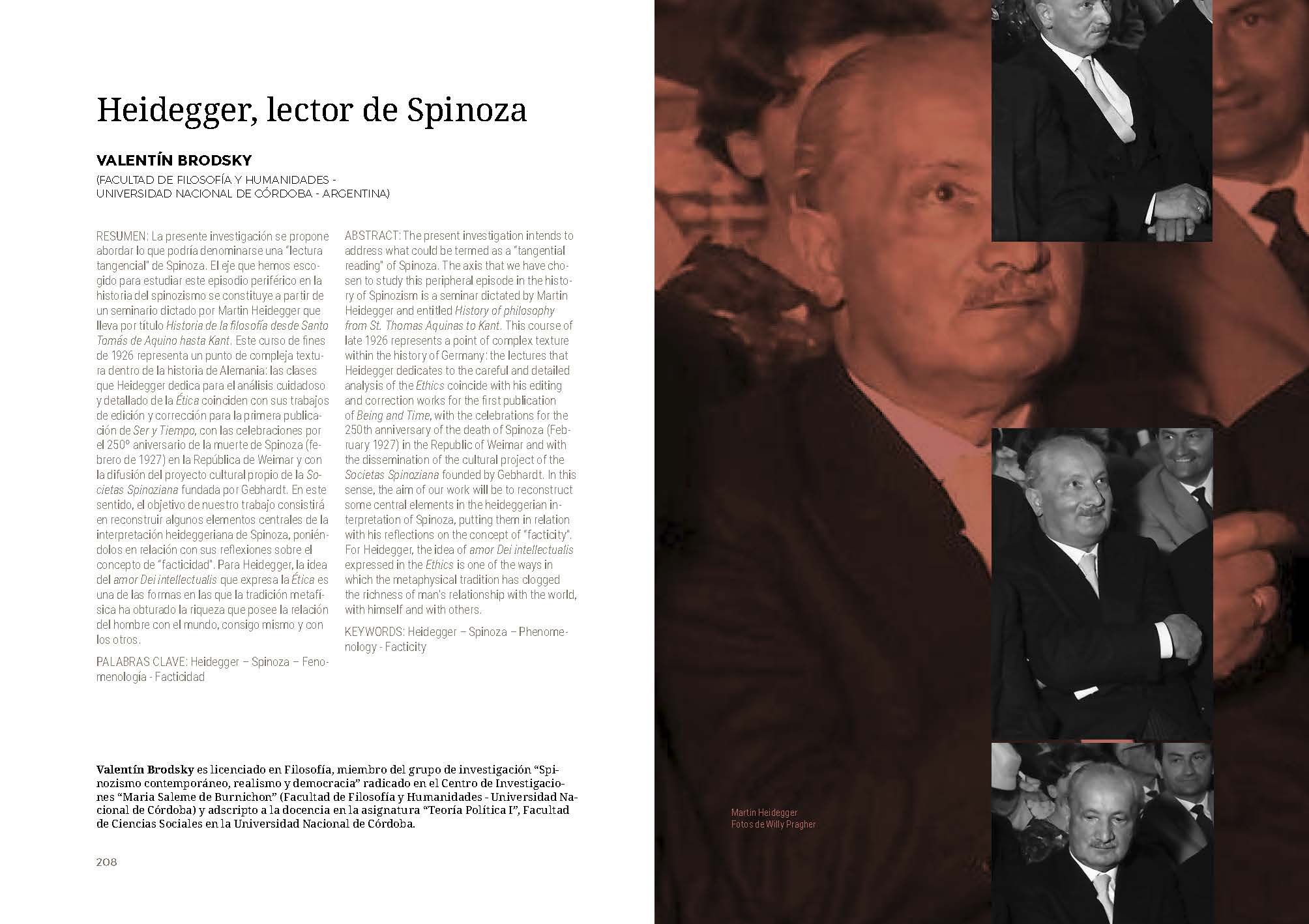Heidegger, lector de Spinoza
Palavras-chave:
Heidegger, Spinoza, Fenomenología, FacticidadResumo
a presente investigación se propone abordar lo que podría denominarse una “lectura tangencial” de Spinoza. El eje que hemos escogido para estudiar este episodio periférico en la historia del spinozismo se constituye a partir de un seminario dictado por Martin Heidegger que lleva por título Historia de la filosofía desde Santo Tomás de Aquino hasta Kant. Este curso de fines de 1926 representa un punto de compleja textura dentro de la historia de Alemania: las clases que Heidegger dedica para el análisis cuidadoso y detallado de la Ética coinciden con sus trabajos de edición y corrección para la primera publicación de Ser y Tiempo, con las celebraciones por el 250º aniversario de la muerte de Spinoza (febrero de 1927) en la República de Weimar y con la difusión del proyecto cultural propio de la Societas Spinoziana fundada por Gebhardt. En este sentido, el objetivo de nuestro trabajo consistirá en reconstruir algunos elementos centrales de la interpretación heideggeriana de Spinoza, poniéndolos en relación con sus reflexiones sobre el concepto de “facticidad”. Para Heidegger, la idea del amor Dei intellectualis que expresa la Ética es una de las formas en las que la tradición metafí- sica ha obturado la riqueza que posee la relación del hombre con el mundo, consigo mismo y con los otros
Downloads

Downloads
Publicado
Como Citar
Edição
Seção
Licença
Copyright (c) 2018 Valentín Brodsky

Este trabalho está licenciado sob uma licença Creative Commons Attribution-NonCommercial-ShareAlike 4.0 International License.




